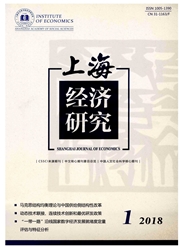

 中文摘要:
中文摘要:
基于1982-2010年中国、日本、韩国、新加坡和中国香港的数据,本文研究了汇率水平及其不确定性对企业海外投资(OFDI)的短期冲击和长期影响。结果表明:汇率对发达经济体OFDI的冲击要大于发展中经济体;本币升值有利于母国对外直接投资的结论只在长期内,对实行自由浮动汇率的经济体,对实行汇率制度的经济体都没有发现支持该论断的证据;汇率不确定性对OFDI的冲击作用随时间逐渐减弱的趋势在各经济体中差异明显;从汇率对OFDI作用的时滞性来看,参考篮子货币汇率制度下时滞最小,钉住汇率制度下最长,而浮动汇率制度下的时滞性介于两者之间。
 英文摘要:
英文摘要:
Based on the data of China, Japan, Korea, Singapore and Hong Kong SAR over the period of 1982 -2010, this paper try to investigate how outward FDI react to exchange rate changes and exchange rate uncertainty in the short term and in the long run. The main results show that the argument that was wildly supported by most of empirical researches is correct only for economies adopting freely floating exchange rate system in the long run; the direction of exchange rate uncertainty affects OFDI various across the samples in the pal~er, however, the trend that the time dependent decay of the impulsion is found in all of the five economies ; the contributions of exchange rate changes and exchange rate uncertainty to OFDI increase for developed economies are larger than developing economies. Finally, the paper finds that time delay under exchange rate regime in reference to a basket of currencies is shortest among the exchange regime, while the time length exchange rate regime. rate regime examined; the longest is under the pegging exchange rate under floating exchange rate system lies between the previous two floating
 同期刊论文项目
同期刊论文项目
 同项目期刊论文
同项目期刊论文
 期刊信息
期刊信息
